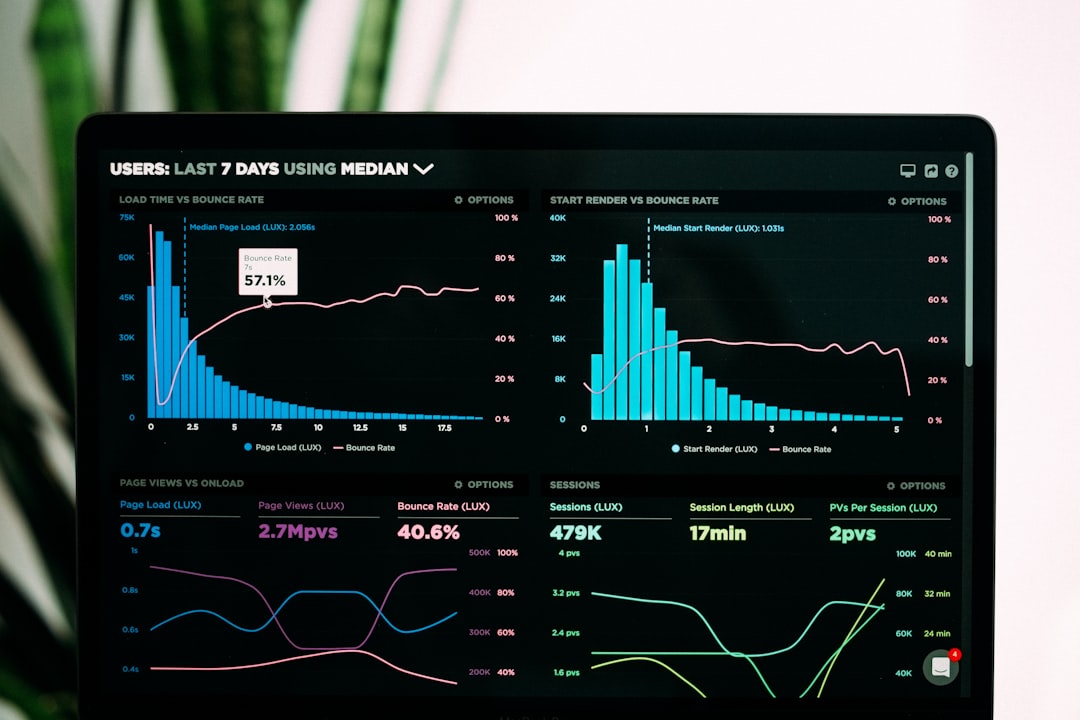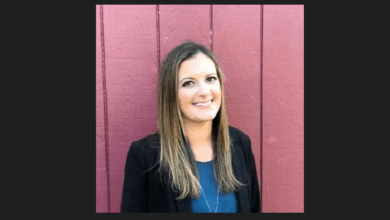What does professional liability insurance cover: 3 Key Protections

Why Professional Liability Insurance is Essential for Florida Businesses
{alt=”Professional Liability Insurance Florida” title=”Professional Liability Insurance Florida” description=”Protecting Florida businesses and professionals from liability claims and financial loss in coastal communities like Sarasota.” geo-tag=”Sarasota, Florida”}
So, what does professional liability insurance cover? It’s a shield against claims of professional wrongdoing, protecting your business from:
- Errors and omissions in your professional services.
- Negligence or mistakes in the advice you give.
- Claims of misrepresentation.
- Undelivered services or missed deadlines.
- Breach of client contracts.
- Legal defense costs, even if a lawsuit is baseless.
A single unhappy client or alleged mistake can lead to a costly lawsuit that threatens your business. That’s why professional liability insurance, also known as Errors and Omissions (E&O) insurance, is vital. This guide explains what PLI covers, who needs it in Florida, and how it protects your professional reputation and financial stability.
I’m Paul Schneider. My team and I own two independent insurance agencies in Florida. We specialize in finding the right coverage for homes, autos, and small businesses, including understanding what does professional liability insurance cover for various professions. We’re here to help you steer these complex topics.
Easy what does professional liability insurance cover glossary:
What is Professional Liability Insurance and What Does It Cover?
Picture this: you’re a consultant in Tampa, and a client claims your advice cost them $50,000. Even if you followed best practices, you could face a lawsuit. This is why Professional Liability Insurance (PLI) exists.
What does professional liability insurance cover? PLI is your financial safety net when clients claim your professional advice or services caused them financial harm. Whether you’re an accountant in Jacksonville or an architect in Miami, if someone alleges your work led to their financial loss, PLI steps in to protect you.
You might hear PLI called Errors and Omissions (E&O) insurance—they’re the same thing. In fields like medicine or law, it’s often called malpractice insurance. The purpose is always to protect your business from the devastating costs of liability claims. PLI provides peace of mind so you can focus on serving your clients, not worrying about potential lawsuits. Even baseless claims can cost tens of thousands to defend, making PLI essential for any Florida professional. For more information, check out our Professional Services Insurance page.
Specific Claims and Financial Losses Covered
So what does professional liability insurance cover in specific situations? PLI protects you from a wide range of professional mishaps.
- Negligence is a common claim, meaning a client believes you didn’t meet the expected standard of care. For instance, a consultant’s efficiency plan might backfire, leading the client to claim financial losses.
- Errors are covered, too. An accountant might transpose numbers on a tax return, or an architect could miscalculate load requirements, leading to expensive delays. These honest mistakes can still result in costly lawsuits.
- Omissions—what you didn’t do—can be just as problematic. A real estate agent who forgets to recommend a termite inspection might face a claim when the buyer finds damage later.
- Misrepresentation and inaccurate advice are also covered. If you provide guidance based on outdated information or make recommendations that don’t pan out, PLI protects you.
- Undelivered services, missed deadlines, and even breach of contract claims related to your professional services typically fall under PLI coverage.
For example, PLI would likely cover: an accountant incorrectly classifying a business entity, resulting in higher taxes; an architect’s design omitting essential HVAC specifications; a consultant’s staffing recommendations leading to operational problems; or a software developer’s program failing to perform as specified.
Does PLI Cover Legal Defense Costs?
Yes—and this is one of PLI’s most valuable features. Even frivolous lawsuits can be a fortune to defend. In Florida’s litigious environment, legal fees can be a serious threat to small businesses.
PLI covers your attorney fees, court costs, and expert witness fees. The policy also handles settlements if you resolve a claim out of court and judgments if a court rules against you.
It’s important to know that most PLI policies use “shrinking limits.” This means your legal defense costs reduce the total coverage available for settlements or judgments. If you have $1 million in coverage and spend $200,000 on defense, you have $800,000 left for any potential payout. This is why choosing adequate coverage limits is crucial for your Florida business.
Common Exclusions: What Professional Liability Insurance Does NOT Cover
While PLI is powerful, it’s specifically for professional service claims. Understanding its exclusions helps you build comprehensive protection.
- Bodily injury and property damage are covered by General Liability Insurance, not PLI.
- Intentional fraud or criminal acts are excluded. PLI covers honest mistakes, not deliberate wrongdoing.
- Employee injuries fall under Workers’ Compensation Insurance, which is required by Florida law for most businesses with employees.
- False advertising claims typically require coverage found in General Liability policies.
- Data breaches and cyber incidents need specialized Cyber Liability Insurance. Standard PLI won’t cover privacy breaches or cyberattacks.
Understanding these distinctions ensures your Florida business has complete protection.
Professional Liability vs. General Liability: Understanding the Key Differences
It’s easy to confuse professional liability with general liability insurance. The simplest way to think about it is: professional liability deals with financial losses from your advice or services, while general liability deals with physical harm to people or property.


{alt=”Professional Liability vs General Liability Insurance” title=”Professional Liability vs General Liability” description=”Illustrating the distinct coverages of professional and general liability insurance for businesses.” geo-tag=”Micco, Florida”}
Professional liability covers the “abstract risks” of your expertise. Did your advice lead to a client’s financial downfall? Did a design mistake cause a costly delay? That’s PLI territory.
General liability covers the “tangible risks” almost any business faces, including:
- Bodily injury: If a customer trips in your office and breaks their arm, general liability pays for their medical bills.
- Property damage: If you spill coffee on a client’s laptop, general liability helps cover the replacement.
- Personal and advertising injury: This can include claims of libel, slander, or copyright infringement.
Florida businesses often need both policies for comprehensive protection because they face both types of risks. A real estate agent in Orlando needs PLI for claims of poor advice and general liability in case a client slips and falls in their office. Having both ensures you’re protected from a wide range of lawsuits. We help businesses across Florida, from Newberry to Micco, combine these coverages effectively. Learn more on our Business Liability Insurance page.
Here’s a table to clarify the differences:
| Feature | Professional Liability Insurance (PLI) | General Liability Insurance (GL) |
|---|---|---|
| Type of Risk Covered | Financial damages from professional services, advice, errors, or omissions. | Bodily injury, property damage, and personal injury (e.g., libel, slander) to third parties. |
| Typical Claims | Negligence, misrepresentation, missed deadlines, faulty advice. | Slip-and-falls, accidental property damage, advertising injury. |
| Who Needs It | Professionals providing advice or services (consultants, accountants, architects, IT professionals, etc.). | Almost all businesses, especially those with a physical location or customer interaction. |
| What it Focuses On | The quality and impact of your professional work. | Accidents and physical harm related to your business operations. |
How Professional Liability Insurance Works: Key Policy Concepts
Understanding what professional liability insurance covers also means knowing how the policies work. PLI policies have unique rules, and understanding them is crucial for protecting your business. Think of it as building a bridge for your business; continuous coverage without gaps is essential for safe passage.


{alt=”Claims-Made vs Occurrence Policy Timeline” title=”Understanding Claims-Made and Occurrence Policies” description=”Visual representation of how claims-made and occurrence professional liability policies cover incidents and claims over time.” geo-tag=”Gainesville, Florida”}
Claims-Made vs. Occurrence Policies
Professional liability insurance typically comes in two forms:
- Claims-Made Policies: This is the most common type for PLI in Florida. A claims-made policy covers claims that are reported to your insurer while your policy is active. The error must also have occurred after a specific “retroactive date.” If your policy expires before a client files a claim, you may not be covered unless you’ve planned ahead. Because of this structure, claims-made policies are generally more affordable.
- Occurrence Policies: These are rarer for professional liability. An occurrence policy covers any incident that happened during the policy period, regardless of when the claim is filed. If a mistake occurred in 2020 under an occurrence policy, you’d be covered even if the lawsuit came in 2025. This long-term coverage is usually much more expensive for PLI.
For most Florida professionals, a claims-made policy is standard, which makes the next two concepts vital.
Understanding Retroactive Dates and Extended Reporting Periods
These two features of a claims-made policy are critical for preventing gaps in your coverage:
- Retroactive Date: This is the “start line” for your coverage. Your policy only covers errors or omissions that happened on or after this date. When switching insurance companies, it’s vital that your new policy’s retroactive date matches the old one. This ensures all your past work remains continuously covered. To learn more, see this article on Do you need retroactive cover?.
- Extended Reporting Period (ERP) or “Tail Coverage”: What if you retire or close your business in Sarasota? If a claim is filed after your claims-made policy expires, you won’t have protection. An ERP, or “tail coverage,” is an endorsement you can purchase that extends the time you have to report claims for incidents that occurred during your active policy period. It’s a lifesaver for professionals closing their doors, as lawsuits can appear years later. To understand more, you can read about Run-off cover explained.
We always emphasize these details to our Florida clients to ensure their professional liability coverage truly protects their entire professional history.
Who Needs PLI in Florida and What Does It Cost?
If your Florida business provides professional advice, specialized services, or intellectual expertise, you likely need professional liability insurance. Many clients and contracts now require service providers to carry a minimum level of PLI before starting work.


{alt=”Diverse Florida Professionals Needing PLI” title=”Professional Liability Insurance for Florida Businesses” description=”A visual representation of various professionals in Florida, including real estate agents, IT consultants, and architects, who benefit from professional liability insurance.” geo-tag=”Orlando, Florida”}
What does professional liability insurance cover for different professions?
PLI is highly customizable to the specific risks of different professions. Here’s a list of professions that frequently need PLI:
- Consultants (Management, Marketing, etc.): Your strategic advice could inadvertently lead to client losses. Business Insurance for Consultants is a must.
- Accountants and Tax Preparers: Mistakes in financial statements or tax filings can have severe financial consequences.
- Real Estate Agents: Claims often arise from alleged misrepresentation of property conditions or errors in contracts.
- Engineers and Architects: Design errors can lead to massive cost overruns or structural failures. Learn more about Errors and Omissions Insurance for Professional Engineers.
- IT Professionals: A software bug, system failure, or data breach from inadequate security advice can cause significant disruption.
- Property Managers: Claims can include alleged discrimination, failure to maintain property, or mismanagement of funds. See our Essential Coverage Tips for Property Manager Insurance page.
- Staffing Agencies: Claims can arise from negligent hiring or misrepresentation of candidates.
- Healthcare Professionals (Therapists, Counselors): Non-medical healthcare providers need PLI for claims related to improper treatment or breach of confidentiality.
- Marketing Professionals: Claims can stem from copyright infringement or failure to deliver promised results.
If you sell your expertise, you should consider PLI.
How Much Does Professional Liability Insurance Cost?
The good news is that PLI is often more affordable than you might expect. According to recent data, the median cost is around $42 to $59 per month, with most policies ranging between $500 and $1,000 per year. For architects and engineers, it averages around $239 per month, while some healthcare professionals might see premiums around $38 per month.
However, the exact cost for your Florida business will depend on several factors:
- Profession and Industry Risk: Higher-risk professions (e.g., engineering, legal) have higher premiums.
- Coverage Limits and Deductible: Higher limits increase your premium, while a higher deductible can lower it.
- Business Size and Revenue: Larger businesses with higher revenue typically require higher limits.
- Location: Costs can vary slightly within Florida based on local legal environments.
- Claims History: A history of claims will likely lead to higher premiums.
- Years in Business: Newer businesses might pay slightly more until they establish a clean record.
Our team works to find the most competitive rates for our Florida clients. For a general overview of liability costs, visit our page on How Much Does Liability Insurance Cost?.
Frequently Asked Questions
We often hear similar questions from Florida professionals trying to understand their insurance needs. Here are some common ones to clarify what professional liability insurance covers.
Is Errors & Omissions (E&O) insurance the same as professional liability?
Yes. Errors and Omissions (E&O) insurance is another common name for professional liability insurance. The terms are used interchangeably. Both refer to the same policy that protects you against claims that you made a mistake, were negligent, or failed to perform a professional service as expected. For more detail, see our page on Errors and Omissions Liability Insurance.
What’s the difference between professional liability and malpractice insurance?
Malpractice insurance is a specific type of professional liability insurance designed for high-risk fields, primarily medical and legal professions. A doctor at a Medical Office in Tampa or a lawyer would carry malpractice insurance, which is specialized for the severe risks in those fields. For most other professionals—like consultants, IT specialists, or engineers—the terms “professional liability” or “E&O” are used. The core protection is the same.
Do I still need my own PLI policy if my employer has one?
Yes, we highly recommend having your own individual policy. An employer’s policy is designed to protect the company first, and it may have gaps or limitations that leave you exposed. Here’s why your own policy is crucial:
- Coverage Limits: A major claim could exhaust the company’s policy limits, leaving you personally exposed if you’re named in the lawsuit.
- Coverage Gaps: The company policy may not cover work done outside your official duties, like side projects or pro-bono work.
- Conflicts of Interest: In a lawsuit, the insurer’s primary duty is to the employer. If a conflict arises, their policy may not defend you as vigorously as you’d want.
- Personal Asset Protection: If you’re found personally liable and the employer’s policy doesn’t fully cover the damages, your personal savings and property could be at risk.
It’s wise to understand your employer’s policy and then speak with an independent agent. At Schneider and Associates Insurance Agencies, we can help identify any gaps to ensure you are fully protected.
Protecting Your Florida Business with the Right Coverage
We hope this guide has clarified what professional liability insurance covers and why it’s essential for your Florida business. Whether you’re a consultant in Tampa or an architect in Jacksonville, one alleged mistake can lead to a lawsuit that threatens everything you’ve built.
Professional liability insurance is your financial lifeline. It covers the immense costs of defending against claims of errors, negligence, or undelivered services. Even if you’re innocent, legal defense costs alone can be financially devastating.
Understanding your policy’s structure—from claims-made vs. occurrence to retroactive dates—is key to ensuring you’re truly protected. You don’t just need a policy; you need the right policy to avoid dangerous coverage gaps. Professional liability insurance covers the unique risks that come with selling your expertise.
As a local, independent agency in Florida, Schneider and Associates Insurance Agencies understands the challenges facing professionals here. We’re your neighbors in Newberry and Micco, and we’ve helped countless Florida businesses find PLI coverage that fits their risks and budget. Our family-owned approach means we take the time to understand your business and craft coverage that gives you real peace of mind.
Don’t gamble with your professional future. The cost of coverage is a fraction of what you’d face in a single lawsuit. Learn more and get a quote for Errors and Omissions Liability Insurance today! Let us help you protect your expertise and livelihood.



